MEDNEWS 03/2021
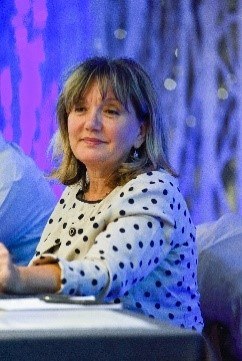 “THE COP FOR THE MEDITERRANEAN”
“THE COP FOR THE MEDITERRANEAN”
By Tatjana Hema, Coordinator, UNEP/MAP
The 22nd Meeting of the Contracting Parties to the Barcelona Convention and its Protocols (COP 22) will be held in Antalya, Turkey, from 7-10 December 2021. The theme of the Ministerial Session, which will take place on 9 December, is “Towards a Blue Mediterranean: leaving a pollution-free legacy, protecting biodiversity and sustaining climate stability”.
The meetings of the Contracting Parties to the Barcelona Convention and its Protocols, held every two years, constitute the principal gathering on environment and sustainable development in our region. COP 22 will be special. First, it will be the first physical meeting of the Contracting Parties since the COVID-19 pandemic struck. It will also mark the 45th anniversary of the Barcelona Convention, born in 1976 in the framework of UNEP/MAP.
I travelled in September to Antalya where I met Professor Mehmet Amin Birpinar, the Deputy Minister of Environment and Urbanization of Turkey, and other colleagues from the Host Country working hard to make COP 22 a success. Professor Birpinar agrees that COP 22 will be a special meeting. He noted the importance of the decisions that will be examined, and which have the potential to mark a turning point for the region, especially after COVID.
Professor Birpinar has a point. The meeting of the Contracting Parties in Antalya will serve as the “COP for the Mediterranean” as it will take place in the aftermath of the first part of the COP 15 Biodiversity Conference and shortly after the COP 26 Climate Change conference. This will allow the UNEP/MAP-Barcelona Convention system to take stock of the latest round of global negotiations and chart a course for an informed regional response to the triple crisis of climate change, biodiversity loss and pollution.
Several draft decisions that the Contracting Parties will examine in Antalya can help the region tackle the intertwined impacts of the global environmental crises while boosting efforts for a post-COVID green recovery in the Mediterranean.
An ambitious UNEP/MAP Medium-term Strategy (MTS) for 2022-2027 will be considered for adoption, along with the post-2020 Strategic Action Programme for the Conservation of Biological Diversity (Post-2020 SAPBIO). The post-2020 SAPBIO is an integrated blueprint for biodiversity conservation that considers the forthcoming Global Biodiversity Framework and focuses attention and efforts on priorities outlined through regional consultations as part of an inclusive process driven by UNEP/MAP and guided by science. This will be complemented by a strategic document on marine protected areas (MPAs) and other effective area-based conservation measures (OECMs).
As they renew their resolve to combat pollution, the Contracting Parties will pore over the possible designation of the Mediterranean Sea, as an Emission Control Area for Sulphur Oxides (MED SOx ECA) pursuant to the MARPOL Convention (Annex VI). They will also consider three new or updated legally binding measures (assorted with timetables for their implementation) to address marine litter prevention, wastewater and wastewater treatment plant-related sludge management based on strict environmental standards and circular economy principles. Greening the shipping sector as part of a sustainable blue economy will be on the COP 22 agenda with two proposed strategies on pollution from ships and ballast water management. This push against pollution is complemented by a draft decision to support to green and circular businesses.
In Antalya, we will renew our call for an enhanced implementation of the Barcelona Convention and its Protocols at the national level, which remains the shortest path to healthy and productive marine and costal ecosystems that underpin the achievement of the SDGs as part of a green recovery in the Mediterranean.
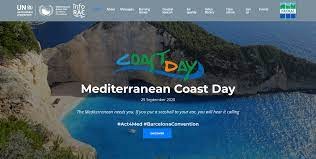
MEDITERRANEAN COAST DAY WIDELY CELEBRATED IN 2021
For the second year in a row, Mediterranean Coastal Day was celebrated in compliance with the restrictions linked to the Coronavirus pandemic. However, this did not prevent the events from being festive and bringing together a large audience, ...
For the second year in a row, Mediterranean Coastal Day was celebrated in compliance with the restrictions linked to the Coronavirus pandemic. However, this did not prevent the events from being festive and bringing together a large audience, especially when they were virtual! Celebrations were organized both at regional level and in many Mediterranean countries.
Among the many initiatives at the regional level, it is worth mentioning in particular the organization of a digital awareness campaign through a website dedicated to the event by INFO/RAC with the support of PAP/RAC and the UNEP/MAP Coordinating Unit. The website contains all the information on this emblematic event, as well as games for all ages to test your knowledge of the coast. It also allows all users of the coast to inform about events they plan to organize so that they are announced on our official page. This site is intended to be permanent, and to be enriched over the years.
The central event of the Mediterranean Coast Day this year took the form of a webinar organized by PAP/RAC on September 27th. The main themes of the webinar were coastal urbanization and tourism, two intrinsically linked themes. The host country of the webinar was Greece, which was represented on this occasion by its Secretary General of the Natural Environment and Water of the Ministry of the Environment, Professor Konstantinos Aravossis. In his introductory speech, Professor Aravossis underlined that these two themes were essential for the entire Mediterranean basin, and in particular for Greece. Professor Aravossis also took advantage of his speech to speak about another major issue in the Mediterranean: marine plastic waste. He stressed the need for immediate action to combat this scourge. The appointment by Zeljka Skaricic, Director of PAP/RAC, of Lefteris Arapakis as Ambassador of the Mediterranean Coast 2021 responds directly to this need, since this young man is the co-founder of a company that collects and recycles plastic waste brought up by fishermen to transform them into clothes and other accessories. Tatjana Hema, MAP coordinator, said that Lefteris, who is the son of a fisherman, was a model of bottom-up initiative because he had succeeded through his motivation in finding an innovative solution to a major problem. She insisted that the experience was particularly inspiring, and that she hoped that the young people of the Mediterranean would follow suit.
Other regional webinars were also organized, such as that of the International Center for Comparative Environmental Law which took place on September 25 and which was entitled “An Effective Law at the service of the Mediterranean Sea: stop plastic pollution and establish legal indicators”. During this event, the participants were invited to discuss how to make the legal rules for the protection of the Mediterranean more effective. The development of environmental legal indicators as an additional guarantee of protection was mentioned in particular.
Also on September 25, a “Mediterranean Ocean Literacy Festival” was organized by the EU4Ocean Coalition with the support of the European Commission's Directorate-General for Maritime Affairs and Fisheries. Ocean literacy initiatives and activities from across the Mediterranean were presented.
In addition to these regional events, many celebrations were organized at the local level, either live or through webinars.
Bosnia and Herzegovina (B&H): As part of the B&H Coastal Area Management Plan, activities were organized on September 23 and 24 for the Mediterranean Coast Day. The 23rd was devoted to capacity building and two training workshops dedicated to the sustainable development of tourism were organized. The key issue was to decide how to promote tourism in the hinterland in the Neum region. The second day was more festive, since schoolchildren had prepared a musical show to which a large audience was invited, and young people were involved in cleaning the beaches.
Cyprus: On September 24, 2021, Mediterranean Coast Day was celebrated in Geroskipou in the presence of the Minister of Agriculture, Rural Development and Environment, Mr. Costas Kadis. The campaign was organized by the NGO AKTI with the support of the Department of Environment, the Municipality of Geroskipou and the Mediterranean office of MOI-ESCEDE. Among the events organized, it is worth mentionning a beach cleaning action by high school students from Geroskipou; sorting waste and recording data in the AKTIS ocean protection database; and the cleaning of the seabed by divers. The highlights of the event are shown in the following video.
Italy: In the afternoon of September 24, the National Convention on Coastal Studies (CNSC) was held at the Fiere e Congressi in Ferrara, as part of the technology fair RemTechExpo2021, which brings together events dedicated to management and coastal and marine protection, as well as coastal engineering and small ports. The event brought together the most competitive companies in the sector, as well as representatives of key authorities, including ministries, port authorities, regions and others.
Slovenia: Even if due to the COVID 19 epidemic, Slovenia has not been able this year to celebrate the Mediterranean Coast Day as it has done every year for a decade, it has decided to dedicate all the same an important event on its coast by organizing the 6th week of the Mediterranean coast and macro-regional strategies 2021 in November 2021. The event will bring together politicians, decision-makers, experts, civil society and the public interested in all the levels - local, regional, national and international. The aim of this year's event is to further enhance collaboration between EUSAIR countries, as well as to strengthen macro-regional efforts of the EU and neighboring countries. The event will be organized online on 9-11 and 22-23 November 2021 on the common stakeholder platform EUSAIR. The platform also contains a lively space for interventions, debates, networking and the exchange of views.
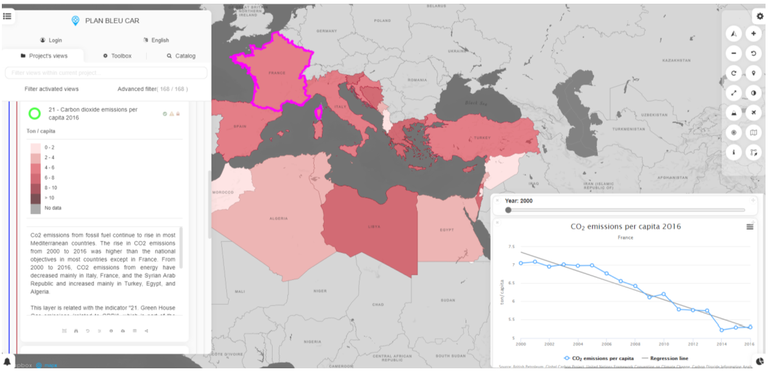
MAPX : PLAN BLEU AND ITS NEW PROJECT
The MSSD and its dashboard are WFP's strategic and technical tool (led by Plan Bleu) to monitor sustainability at the regional level by providing a set of 28 indicators. To achieve these objectives of monitoring sustainability and supporting ...
The MSSD and its dashboard are WFP's strategic and technical tool (led by Plan Bleu) to monitor sustainability at the regional level by providing a set of 28 indicators. To achieve these objectives of monitoring sustainability and supporting decision-making processes, Plan Bleu is working to set up a genuine Mediterranean network observatory, involving specialized national agencies such as statistical institutes, thematic observatories, laboratories and ministerial departments.
Based on the latest technologies in environmental information sharing (open source and interoperable), Plan Bleu has developed a pilot project in partnership with UNEP / GRID in Geneva. This project allows to publish the data they manage (from the MSSD dashboard) and make it viewable in the MapX environment, the cartographic component of the World Environment Situation Room (WESR), the future digital infrastructure for online data sharing of UNEP. This tool offers various functionalities such as the interactive sharing of environmental information and the combination of maps of environmental information and human activities at different scales.
With a dynamic MSSD dashboard, Plan Bleu is positioned at the forefront to support the decision-making process and measure the progress made with regard to the sustainable development goals linked to the environment and multilateral environmental agreements. This goes hand in hand with enhanced governance on the sharing of environmental information by mobilizing the collective expertise (institutional, non-governmental, academic) of all the actors in the observation of the Mediterranean environment.
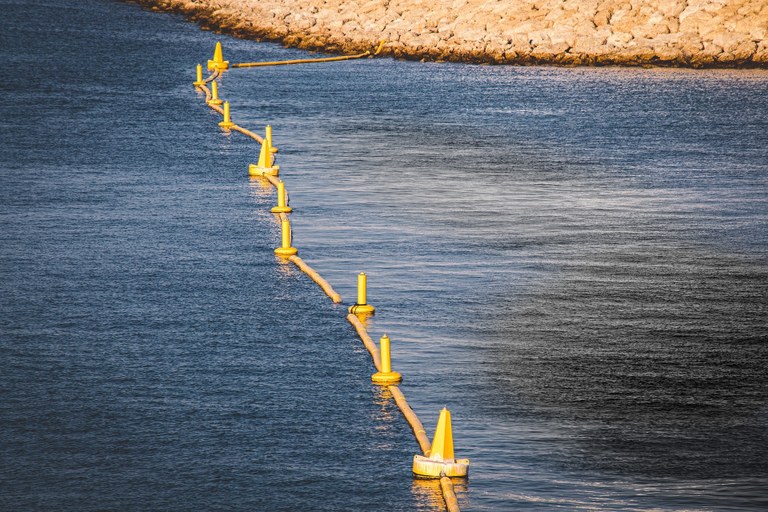
SYRIA OIL SPILL
On August 23rd 2021 Syria requested emergency assistance due to a leakage of fuel into the sea occurred from one of the fuel tanks (contained 12,000 m3 of fuel ) at the Baniyas thermal station. In response REMPEC activated the Mediterranean ...
On August 23rd 2021 Syria requested emergency assistance due to a leakage of fuel into the sea occurred from one of the fuel tanks (contained 12,000 m3 of fuel ) at the Baniyas thermal station. In response REMPEC activated the Mediterranean Operational Network for the Global Ocean Observing System (MONGOOS) (CMCC, Orbitaleos and Orion), member of the Mediterranean Assistance Unit. As result neighbouring countries, i.e. Cyprus, Israel, Lebanon and Turkey were notified for a possible arrival of oil on coastal areas. Later on a crisis management meeting was organized and attended by representatives of the Ministry of Local Administration and Environment, UNEP/West Asia, UNEP/MAP, IMO and REMPEC. to obtain updated information on the pollution, the impacted areas, measures undertaken by the Syrian Government and REMPEC and to define the course of action.
Following the oil spill forecast Cypriot authorities mobilised the EMSA vessel “Alexandria”, and requested REMPEC to notify Greece and Israel about the potential activation of the Sub-regional Marine Oil Pollution Contingency Plan between Cyprus, Greece and Israel.
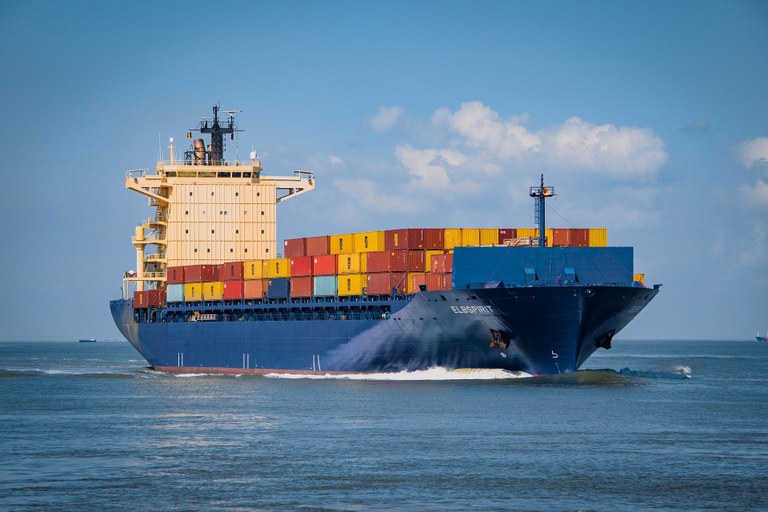
LAUNCH OF THE VIDEO ON THE MED SOX ECA - MAIN ACHIEVEMENTS OF THE AIR DAY
On the International Day of Clean Air for Blue Skies Air Day the Regional Marine Pollution Emergency Response Centre for the Mediterranean Sea (REMPEC) launched the video on the designation of the Mediterranean Sea, as a whole, as an Emission ...
On the International Day of Clean Air for Blue Skies Air Day the Regional Marine Pollution Emergency Response Centre for the Mediterranean Sea (REMPEC) launched the video on the designation of the Mediterranean Sea, as a whole, as an Emission Control Area for Sulphur Oxides (Med SOx ECA) pursuant to MARPOL Annex VI, developed within the framework of the Barcelona Convention. This video aimed at raising awareness and informing of the on-going process. It should enable to better understand the maritime context of the Mediterranean region, as well as the impact of Sulphur Oxides (SOx) and Particulate Matters emitted from ships on human health and the environment.
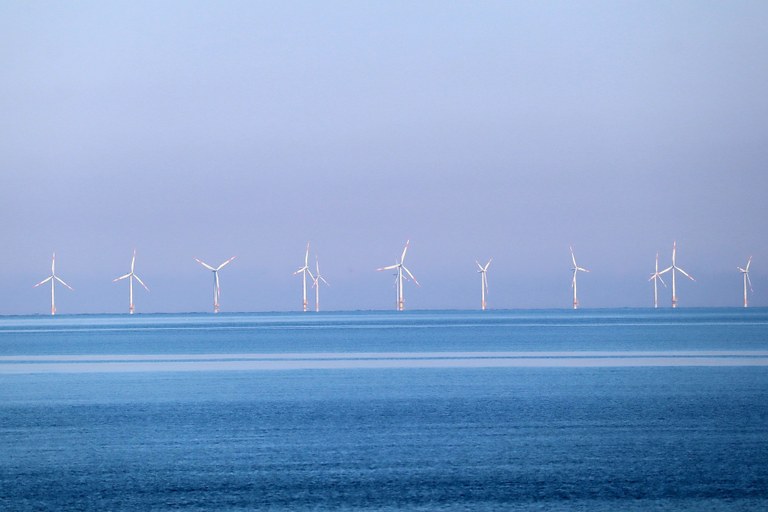
PLAN BLEU PRESENTED THE WORK ON RENEWABLE MARINE ENERGIES OF THE BLUE GROWTH COMMUNITY AT THE BLUE ENERGY EVENT
On Tuesday September 21, the Blue Energy event organized by INTERACT was held. This online event discussed the potential of maritime cooperation, of cooperation beyond maritime borders supported by Interreg in the field of marine renewable energies. ...
On Tuesday September 21, the Blue Energy event organized by INTERACT was held. This online event discussed the potential of maritime cooperation, of cooperation beyond maritime borders supported by Interreg in the field of marine renewable energies. Read the article.
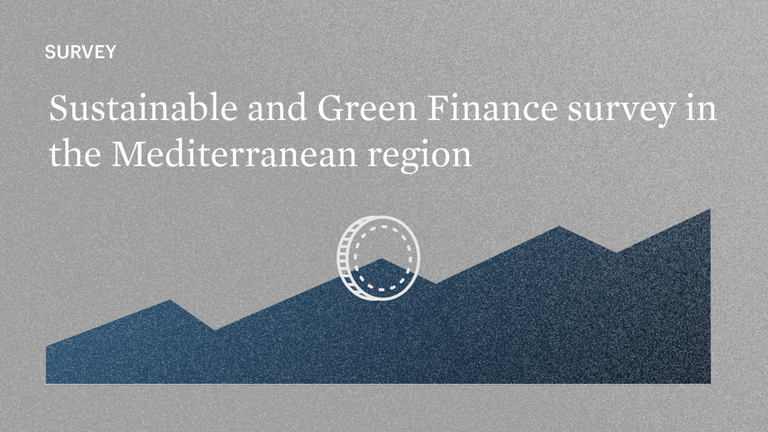
SUSTAINABLE FINANCE: ANSWER SCP/RAC’S SURVEY TO HELP IDENTIFY THE BARRIERS AND ENABLING CONDITIONS TO SUSTAINABLE INVESTMENTS
Finance is key to achieve a transition to sustainable business models and contribute to economic, social and environmental sustainability. In that respect, SCP/RAC, through SwitchMed has launched a survey to assess the perspective of Mediterranean ...
Finance is key to achieve a transition to sustainable business models and contribute to economic, social and environmental sustainability. In that respect, SCP/RAC, through SwitchMed has launched a survey to assess the perspective of Mediterranean investors and relevant stakeholders. The survey is still open, please send your feedback!
The survey aims at assessing the perspective of investors and relevant stakeholders in the Mediterranean and shed light on the level of awareness of these actors with regards to the main access to finance barriers faced by green economy activities and identify the most relevant enabling conditions required to increase sustainable investments in the future.
This activity stems from the fact that an important instrument available to achieve sustainable development is finance, deployed in a way that investments can contribute to economic, social and environmental sustainability.
The whole Mediterranean is facing systemic risks due to climate change, biodiversity loss and related social and economic instability. A multilevel coordinated action is needed to find lasting solutions where a profound integration of sustainable development principles into the mechanism of the economy and business is paramount in ensuring a future for the region. Sustainable finance thus becomes crucial to promote and sustain a financial flow aiming at strengthening the transition to more sustainable business models, investments, environmental and social projects and policies.
But what is the current situation in the Mediterranean area when it comes to sustainable finance? What are the instruments preferred by investors and what are the most relevant sectors to invest in and that vary according to the specific geographical and economic situations of each country? Are investors willing to tackle one or more specific SDGs? Understanding not only the needs of companies but also those of investors enables to identify alternative or more suitable solutions to the specificities of the green economy.
The desire to give a voice to the main players in finance in the Mediterranean and to outline their trends is the basis of an exercise of understanding carried out by the SCP/RAC and comprised of a regional study, focus group activities, expert discussions and finally this questionnaire. Answer this survey here.
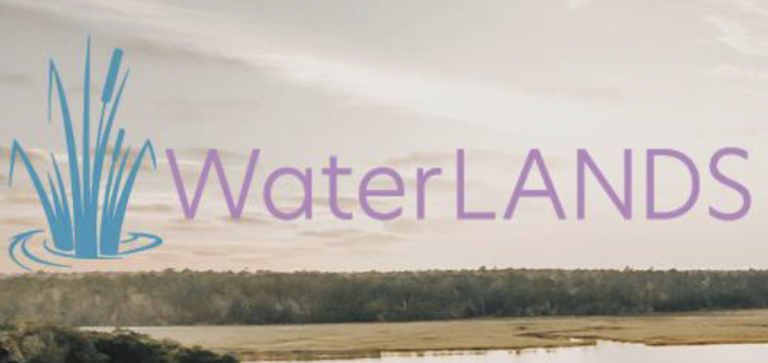
LAUNCH OF THE WATERLANDS HORIZON 2020 PROJECT
Plan Bleu is pleased to announce that the WaterLANDS Horizon 2020 project, of which it is are a partner, has been launched.
Funded by the European Horizon 2020 Green Deal program, this five-year project will focus on the large-scale restoration of ...
Plan Bleu is pleased to announce that the WaterLANDS Horizon 2020 project, of which it is are a partner, has been launched.
Funded by the European Horizon 2020 Green Deal program, this five-year project will focus on the large-scale restoration of wetlands in Europe.
Plan Bleu will be involved in WP3 “Aligning Governance”; and WP7 "Communication, Dissemination, Data and Knowledge Management and Exploitation of Results". Read the article.
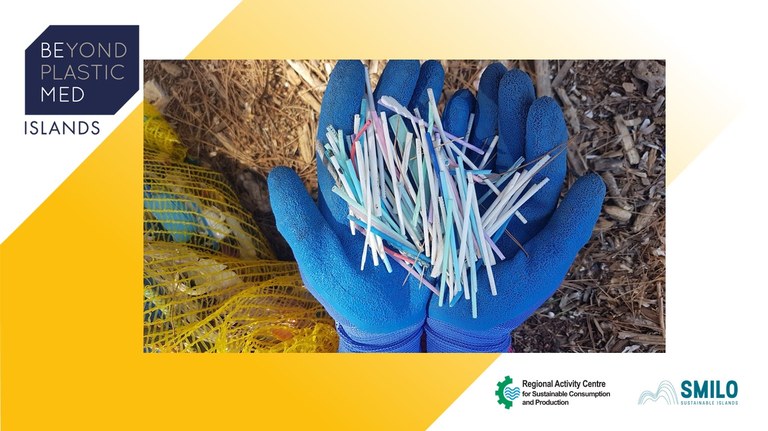
#BEMEDISLANDS COMMUNITY, A NEW COMMUNITY TO JOIN FORCES FOR MEDITERRANEAN PLASTIC-FREE ISLANDS
With plenty of ongoing initiatives on plastics in the Mediterranean, collaboration and joint actions are key for success. In this sense, the #BeMedIslands community was born to capitalise the efforts of the actions and projects supported by Beyond ...
With plenty of ongoing initiatives on plastics in the Mediterranean, collaboration and joint actions are key for success. In this sense, the #BeMedIslands community was born to capitalise the efforts of the actions and projects supported by Beyond Plastic Med (BeMed) organisation in the region.
The community, which gathers BeMed project beneficiaries across Mediterranean islands, is animated by SCP/RAC and SMILO (Small Islands Organisation) within the BeMed-Islands capitalisation process. In fact, this is a key element to promote harmonized approaches, build synergies across projects and mainstream their messages and lessons learnt.
To this aim, six thematic workshops are taking place (from September to November) to address key shared topics such as plastic waste management, marine litter monitoring, sound alternatives to single-use plastic products and regulatory measures. In these meetings, guest speakers as well as beneficiaries share knowledge and lessons learnt, and hence they are a perfect occasion for collaboration and networking. In these sessions, we could hear the experience of AJEM (Association Jlij pour l'Environnement Marin) in collecting plastic waste at source in Djerba Island (Tunisia). Another example is the clean ups and data collection being organized by RAF (the Royal Albanian Foundation) in ten Albanian islands. Guests speakers include renowned organisations such as Surfrider Europe.
The marine litter monitoring and data collection framework, as key element for the Barcelona Convention Mediterranean policies has been presented to the community by Mr. Christos Ioakeimidis (UNEP/MAP - MedPOL) on the occasion of the third technical session on “Marine litter monitoring in islands”.
The BeMed-Islands capitalisation process is implemented by SCP/RAC and SMILO, and funded by Beyond Plastic Med organisation. The process entails transfer and mainstreaming activities as well, stay tuned! And register to the mailing list to receive further information.
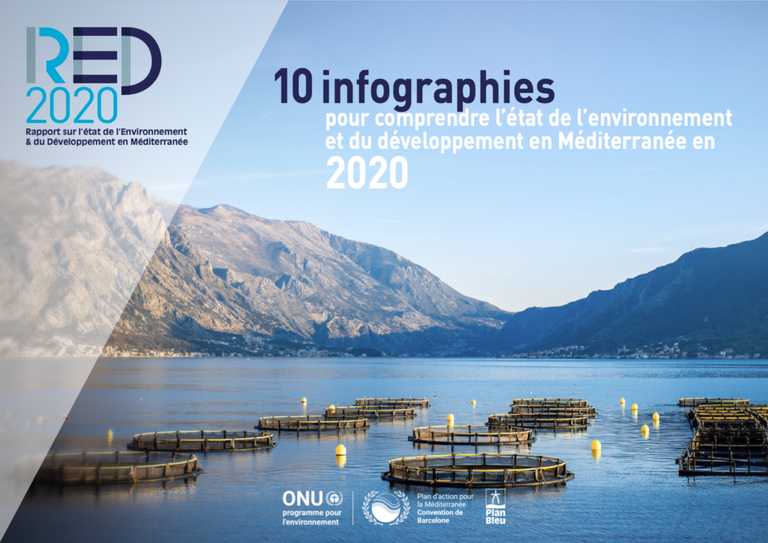
PLAN BLEU’S NEWS PUBLICATIONS
10 infographics to understand the state of the environment and development in the Mediterranean in 2020.
Download booklet
10 infographics to understand the state of the environment and development in the Mediterranean in 2020.
Download booklet
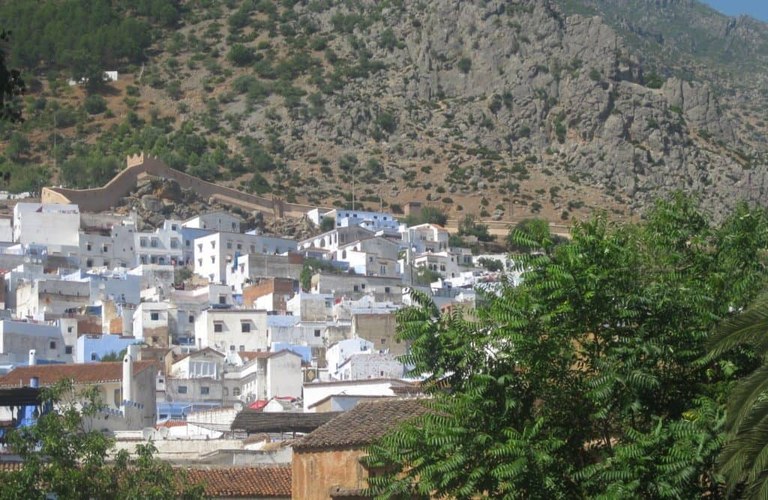
SIMPLIFIED PEER REVIEW MECHANISM OF SUSTAINABLE DEVELOPMENT STRATEGIES IN MEDITERRANEAN COUNTRIES
Based on a voluntary principle and equal participation for involved Contracting Parties, the Simplified Peer Review Mechanism (SIMPEER) aims at fostering dialogue between Mediterranean countries for a mutual improvement and learning process on ...
Based on a voluntary principle and equal participation for involved Contracting Parties, the Simplified Peer Review Mechanism (SIMPEER) aims at fostering dialogue between Mediterranean countries for a mutual improvement and learning process on National Strategies for Sustainable Development (NSSDs).
Download Technical Report Albania
Download Technical Report Egypt
Download Technical Report Tunisia

THE CENTRAL AND EASTERN MEDITERRANEAN COASTAL STATES EVALUATES THEIR READINESS TO RESPOND TO OIL SPILLS JOINING WESTERN MEDITERRANEAN COUNTRIES IN THE USE OF HARMONISED ASSESSMENT TOOL - MEDITERRANEAN PROJECTS
REMPEC has organized the Sub-regional Workshop on the assessment of the level of oil spill response planning and readiness management for the Central and Eastern Mediterranean, financed by the International Maritime Organization’s (IMO) Integrated ...
REMPEC has organized the Sub-regional Workshop on the assessment of the level of oil spill response planning and readiness management for the Central and Eastern Mediterranean, financed by the International Maritime Organization’s (IMO) Integrated Technical Cooperation Programme (lTCP)) between 7 and 8 September 2021. This Workshop marked n important milestone toward the harmonisation of national assessment of the level of preparedness to respond to oil spills, throughout the Mediterranean region. Approximately thirty-five (35) representatives attended the workshop, participants acquired knowledge and experience on the use of assessment tools to analyse and identify gaps in national oil preparedness and response systems, including oiled wildlife response with the contribution of the Sea Alarm Foundation (Member of the Mediterranean Assistant Unit).
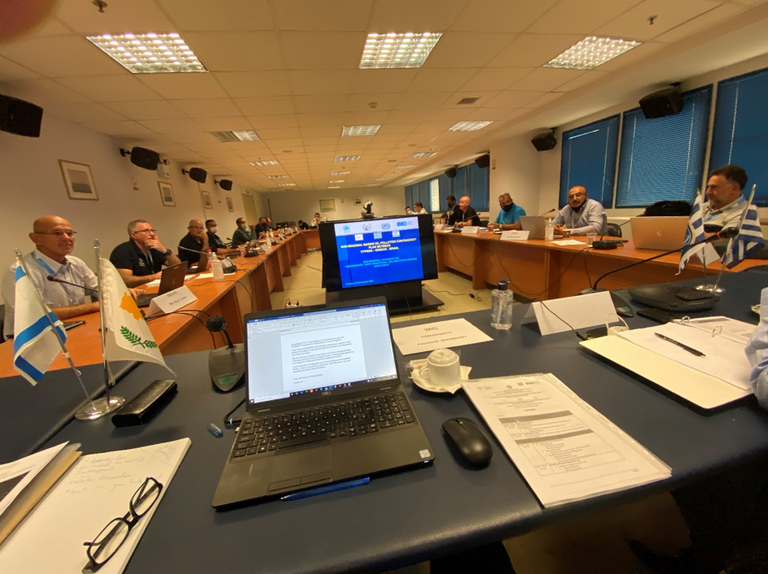
A NEW STEP TOWARDS A MORE HARMONISED APPROACH ON THE USE OF DISPERSANTS IN THE EASTERN MEDITERRANEAN REGION - NEWS FROM THE MEDITERRANEAN BASIN
Within the framework of the Sub- regional Marine Oil Pollution Contingency Plan between Cyprus, Greece and Israel (the Plan), the Marine Environment Protection Directorate, Ministry of Maritime Affairs and Insular Policy in Greece organised in ...
Within the framework of the Sub- regional Marine Oil Pollution Contingency Plan between Cyprus, Greece and Israel (the Plan), the Marine Environment Protection Directorate, Ministry of Maritime Affairs and Insular Policy in Greece organised in collaboration with the Regional Marine Pollution Emergency Response Centre for the Mediterranean Sea (REMPEC), a Sub-regional Workshop on "Dispersants, operational usage and effectiveness monitoring" (Piraeus, Greece, 5-6 October 2021). The workshop was attended by sixteen participants representing different national governmental and operational authorities from the three Countries. The workshop enhanced decision making skills to respond to oil spills using dispersants effectively and safely, and initiated dialogue between Cyprus, Greece and Israel to explore ways to harmonise as much as possible the use of dispersants within the Plan.

A NEW EUROPEAN PROJECT AIMS TO MAKE THE TRANSITION TO THE CIRCULAR ECONOMY SOCIALLY FAIR: WELCOME TO JUST2CE
SCP/RAC is welcoming JUST2CE, a new EU-funded project aiming at understanding the transition to a circular economy and its implications on the environment, economy and society.
Coordinated by the Autonomous University of Barcelona in collaboration ...
SCP/RAC is welcoming JUST2CE, a new EU-funded project aiming at understanding the transition to a circular economy and its implications on the environment, economy and society.
Coordinated by the Autonomous University of Barcelona in collaboration with the University of Vigo, this project brings together 14 partners (including the SCP / RAC) from nine European and African countries (Spain, Portugal, Italy, Greece, United Kingdom, South Africa South, Ghana, Ethiopia and Zimbabwe), both academic institutions and research centers and non-governmental organizations.
The project was officially launched on September 9 and 10 in a hybrid event both online and face-to-face, in the halls of the Recinte Modernista Sant Pau where the SCP / RAC has its own premises. More than 50 partners, experts and academics associated with the project were able to officially launch, all together, the future activities of this promising project.
JUST2CE aims at understanding, in critical and thoughtful way, under which conditions a responsible, inclusive and social just transition to a circular economy is possible and desirable, what technical, political and social factors can enable or hamper such transformation and how these aspects can contribute to the development of transitional policy measures. The conviction underpinning the project is that the success of a transition towards a sustainable circular economy does not merely depend on the development of new technologies - artefacts or processes - but also in the reconfiguration of the governance of productive processes into more democratic and participatory mechanisms of designing and managing technology.
In order to better understand how Circular Economy is implemented on the ground and identify enablers and barriers to the implementation of Circular Economy in different contexts, 10 case studies will be developed. One of them will be conducted under the supervision of SCP/RAC and will focus on the Plastic Recycling Value Chain in Morocco.
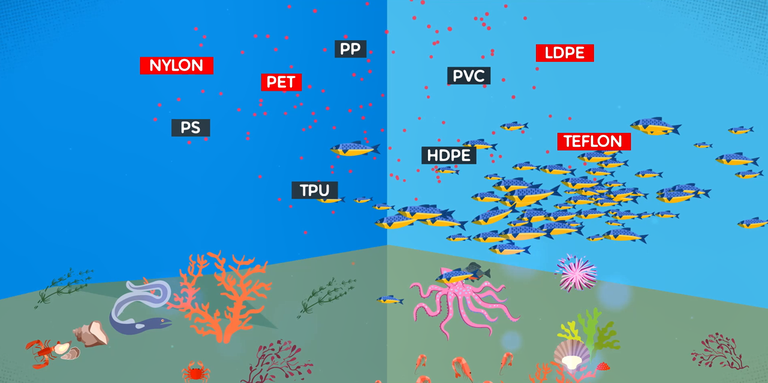
EVER WONDERED WHERE TOXIC CHEMICALS ARE FOUND?
Watch SCP/RAC’s video unveiling facts about toxic chemicals present in our daily life plastic products.
Many of the chemicals used to produce plastic products are known to be toxic, some are recognized as endocrine-disrupting chemicals or as ...
Watch SCP/RAC’s video unveiling facts about toxic chemicals present in our daily life plastic products.
Many of the chemicals used to produce plastic products are known to be toxic, some are recognized as endocrine-disrupting chemicals or as persistent organic pollutants (the so-called POPs and new POPs listed under the Stockholm Convention, to which SCP/RAC is the Regional Centre for Spain, and addressed by the Protocol for the Protection of the Mediterranean Sea Against Pollution from Land-Based Sources to the Barcelona Convention). The video is available in French, English, Arabic and Spanish.
They play a key role in our everyday life and can be found all around us as: Flame retardants, Perflourinated chemicals, Phthalates, Bisphenols, Nonylphenols. Invisible to the eye yet present in a variety of products, furniture, electronics and toys, they may cause allergies and hypersensitivity, damage to the nervous system, reproductive disorders, and disruption of the immune system. Even if they’re banned under international laws, their use is sometimes allowed through exemptions.
Actions must be taken to protect the environment, as we see impacts in both humans and wildlife, we strive to raise awareness among population finding ways in which citizens can engage in this effort. It is with this objective that SCP/RAC had released a short-animated video providing an overview of the toxic threat caused by toxic chemicals that surround us every day.
Did you know that chemicals can migrate out of products? Or that many toxic chemicals are used as additives in plastic? We all know that plastic remains in the environment for hundreds of years and can break up into micro and nanoplastics, but did you know that these can travel long distances? Did you know that chemicals, together with plastics can enter the food chain? Stay tuned to our news channel to find out more on how we can tackle this invisible but growing issue. Watch it here
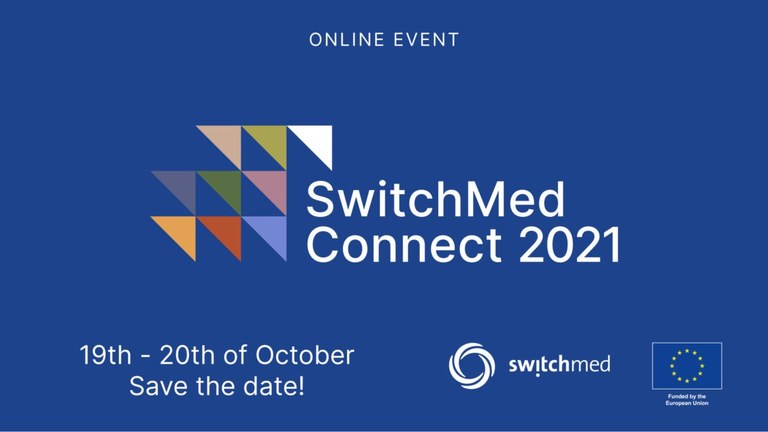
SWITCHMED CONNECT 2021: WATCH THE FIRST EDITION OF PHASE II OF THE SWITCHMED PROGRAMME FLAGSHIP EVENT
The 2021 edition of the SwitchMed Connect took place online on the 19th and 20th of October. It was the first edition of Phase II (2019-2023) of the SwitchMed programme.
SwitchMed Connect is the flagship event of the SwitchMed programme. The ...
The 2021 edition of the SwitchMed Connect took place online on the 19th and 20th of October. It was the first edition of Phase II (2019-2023) of the SwitchMed programme.
SwitchMed Connect is the flagship event of the SwitchMed programme. The Regional Activity Centre for Sustainable Consumption and Production (SCP/RAC) manages the Networking Facility of the SwitchMed programme, and is in charge of organizing this gathering of Mediterranean stakeholders aiming to build synergies, exchange knowledge and scale up eco and social innovations, namely the SwitchMed Connect. It hosts leading start-ups and entrepreneurs, industry agents, initiatives, change agents, policy and financial institutions working on applications of productive, circular and sharing economies in the Mediterranean. At these regional events, both macro and micro level organisations come together for cross-country exchanges, knowledge sharing and the elaboration of solutions to challenges for scaling up eco-innovative business models.
In the first phase of the SwitchMed programme (2013-2018), three editions of the SwitchMed Connect were organized, namely in 2015, 2016 and 2018, each with more than 400 participants from diverse types of organisations. SwitchMed Steering Committee decided to postpone the 2020 edition of the SwitchMed Connect, due to the COVID-19 pandemic. In this sense, the role of the 2021 edition was to introduce the new activities and partners of the programme.
If you did not have the chance to participate in the event when it was taking place, you can still watch the videos of the different public conferences organized on Wednesday 20 October and discover what Phase II of the SwitchMed programme is about thanks to this dedicated playlist.
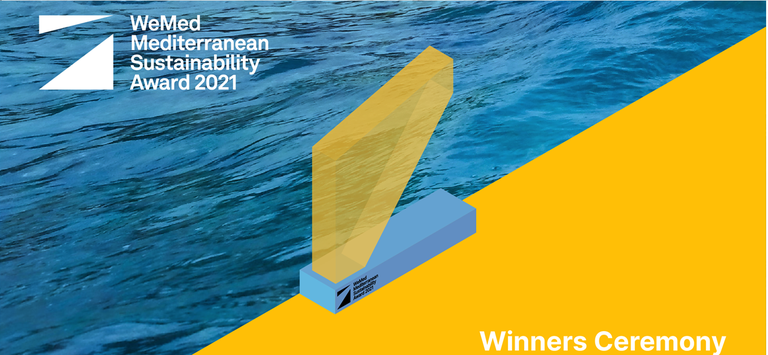
And the WeMed Award winners are…
On Wednesday 20 October 2021, the WeMed Award winners were publicly announced through an online Award Ceremony, as a closing event for SwitchMed Connect 2021.
The goal of this first edition of the WeMed Award was to recognize the outstanding ...
On Wednesday 20 October 2021, the WeMed Award winners were publicly announced through an online Award Ceremony, as a closing event for SwitchMed Connect 2021.
The goal of this first edition of the WeMed Award was to recognize the outstanding achievements of sustainable businesses and public authorities supporting them. The 7 finalists were invited to share their remarkable stories, and finally the 3 winners and 2 honorary mentions were announced.
The winner of the Early Stage category is Green Fashion, from Egypt, a business that combines the reuse of the textile and fashion industry's waste with the empowering of marginalized women. Discover more about their project in this video.
The winner of the Growth Stage Category is Fabric Aid, from Lebanon, that aims to establish a socially and environmentally conscious value chain for the apparel industry. Discover more about their project in this video.
The winner of the Public Authorities Category is Jordan Renewable Energy and Energy Efficiency Fund (JREEEF), a public initiative that aims at providing funding for sustainable energy measures in Jordan. Discover more about their project in this video.
Finally, two sustainable businesses were granted with an Honorary Mention, Moline, from Tunisia, that aims to create sustainable skincare products, and AKYAS Sanitation, from Jordan, that presented a sustainable and low-cost sanitation system for vulnerable populations.
If you missed the Ceremony, you can watch the video here.
The WeMed Award was created and is hosted by SCP/RAC as part of the Switchers Support Programme. The WeMed Award is a flagship initiative of the UNEP/MAP Mediterranean Strategy for Sustainable Development. The first edition of WeMed is funded by the EU through the SwitchMed Programme.
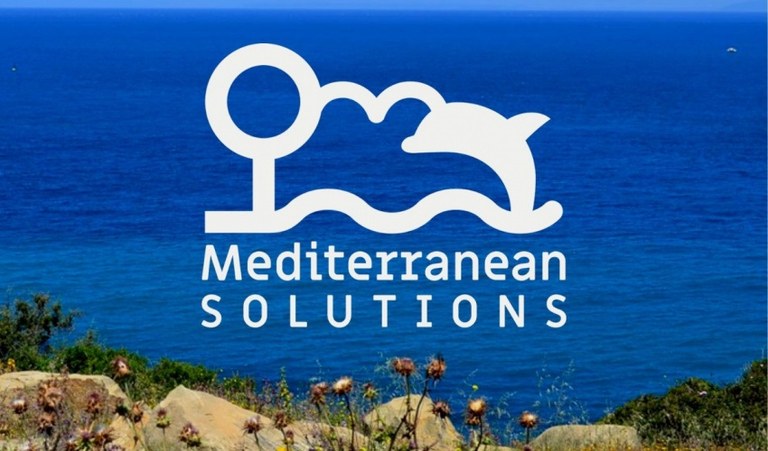
IUCN Congress
The IUCN World Conservation Congress held in Marseille, provided an important opportunity for the Mediterranean conservation community to exchange new solutions for addressing the main challenges of the region in terms of climate action and ...
The IUCN World Conservation Congress held in Marseille, provided an important opportunity for the Mediterranean conservation community to exchange new solutions for addressing the main challenges of the region in terms of climate action and biodiversity conservation. Following the new political announcements and the launch of the Plan of Action for an Exemplary Mediterranean Sea by 2030 (PAMEX) by 8 Mediterranean governments and 5 NGO to preserve marine biodiversity through 19 operational actions, 12 partner organisations explored new joint mechanisms to kick-start nature-based recovery across the region.
The urgency to act to reverse the current trends in the region was confirmed by the findings of three different reports presented by the network of experts on climate change in the Mediterranean (MedECC), Plan Bleu (with SPA/RAC contribution on biodiversity topics) and Tour du Valat, namely the MedECC MAR1 – Climate and Environmental Change in the Mediterranean Report, the State of the Environment and Development Report, and the Living Mediterranean Report. In a region that is warming up 20% faster than the rest of the world, the dramatic effects of unsustainable development on terrestrial and marine ecosystems are indeed placing human livelihoods of current and future generations at risk.

PROJECT ENSERES
UNEP/MAP-SPA/RAC is a partner in the new project “ENSERES” financed by the European Union.
The project ENSERES (ENhancing Socio-Ecological RESilience in Mediterranean coastal areas) funded by the European Union under the Euro-Mediterranean ...
UNEP/MAP-SPA/RAC is a partner in the new project “ENSERES” financed by the European Union.
The project ENSERES (ENhancing Socio-Ecological RESilience in Mediterranean coastal areas) funded by the European Union under the Euro-Mediterranean cooperation program ENI CBC Med, has kicked off in Malaga on 20 October 2021 bringing together international organizations engaged in research, environmental protection, and public authorities from five countries to start the work plan for the next 24 months, until September 2023.
SPA/RAC is part of this new partnership among Mediterranean cities and marine protected area networks. The objective of this new collaboration is to enhance transfer monitoring and management knowledge and techniques and digital tools across the Mediterranean shores. The knowledge about ecosystems and biodiversity and the environmental threats and pressures they face will provide the basis for the adoption of protection and management measures with an integrated approach, in particular in Sfax (Tunisia) and in Tyre (Lebanon).
The project aims to integrate existing management tools with an ecosystem-based approach into coastal and marine areas. The Mediterranean natural resources offered by the sea and its surroundings are crucial for its economic and social sustainability. This project should help people living along the coast to better know the value of these ecosystems and engage them in their protection through an enhanced integrated management of human activities. Read more.
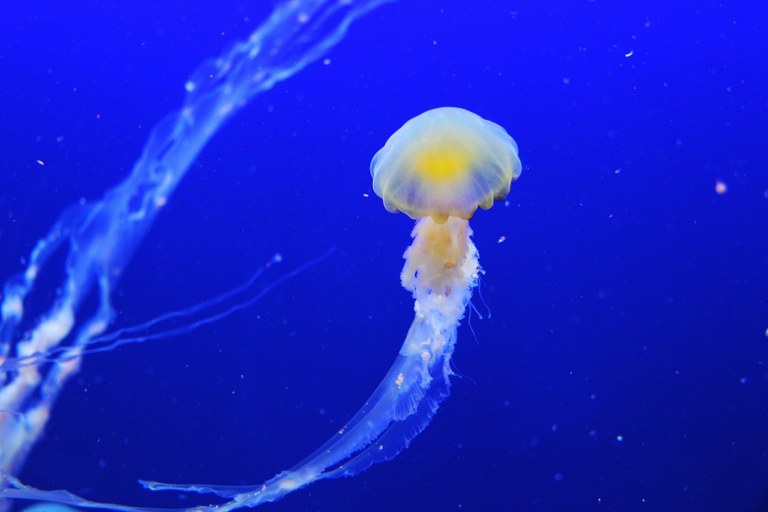
THE ECOSYSTEM APPROACH COORDINATION GROUP CALLS FOR A SURGE IN ENVIRONMENTAL DATA
The United Nations Environment Programme’s Mediterranean Action Plan (UNEP/MAP)–Barcelona Convention Secretariat hosted an online meeting of the Ecosystem Approach Coordination Group (EcAp CG) on 9 September 2021. The EcAp CG comprises ...
The United Nations Environment Programme’s Mediterranean Action Plan (UNEP/MAP)–Barcelona Convention Secretariat hosted an online meeting of the Ecosystem Approach Coordination Group (EcAp CG) on 9 September 2021.
The EcAp CG comprises representatives of the Contracting Parties to the Barcelona Convention (21 Mediterranean countries and the European Union).
Participants in the meeting reviewed progress and recognized efforts in the implementation of the Ecosystem Approach Roadmap in the Mediterranean. The deliberations addressed the need to complement nationally sourced data with input from scientific institutions. The implementation of the Integrated Monitoring and Assessment Programme for the Mediterranean Sea and Coast (IMAP), a regionally harmonized environmental data production system adopted by the Contracting Parties to the Barcelona Convention, remains one of the top priorities of UNEP/MAP.
The meeting agreed on a Data Policy for IMAP. Progress was also made on several technical fronts related to IMAP Common Indicators that the Contracting Parties adopted for harmonized environmental monitoring and assessment of Good Environmental Status (GES) of the Mediterranean Sea and Coast. Updated baseline and threshold values for marine litter—upon which regional and national efforts in the implementation of measures and the assessment of GES will be based— were approved for consideration by the 22nd Meeting of the Contracting Parties to the Barcelona Convention and its Protocols (COP 22).
In addition, the participants thrashed out assessment criteria for contaminants, pollution effects and nutrient concentrations. On biodiversity, work has advanced in establishing assessment scales, baseline and threshold values related to marine mammals and sea turtles. Guidance factsheets on non-indigenous species were approved.
There was an agreement on the structure of the forthcoming edition of the Mediterranean Quality Status Report (2023 MED QSR), one of the UNEP/MAP-Barcelona Convention system’s flagship knowledge products and a major deliverable for the 2022-2023 biennium. The 2023 MED QSR illustrates the urgent need for the Contracting Parties to provide quality-assured data.
Finally, the participants agreed on a proposal to strengthen the governance mechanism of the Ecosystem Approach Coordination Group for the effective implementation of the Ecosystem Approach.
The Ecosystem Approach pursues the management of human activities and ecosystems in an integrated and sustainable manner. Its relevance is encapsulated in the shared vision that it aims to fulfil: “healthy Mediterranean with marine and coastal ecosystems that are productive and biologically diverse for the benefit of present and future generations”.
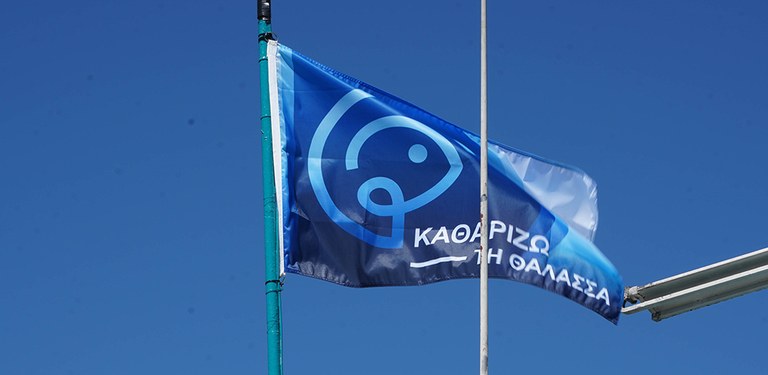
REPRESENTATIVES OF GREECE AND UNEP/MAP MEET WITH THE AMBASSADOR FOR THE MEDITERRANEAN COAST
On 24 September 2021 the Secretary-General of the Hellenic Ministry of Environment and Energy Konstantinos Aravossis and UNEP/MAP Coordinator Tatjana Hema met with Lefteris Arapakis, the UNEP Young Champion of the Earth for Europe (2020). The ...
On 24 September 2021 the Secretary-General of the Hellenic Ministry of Environment and Energy Konstantinos Aravossis and UNEP/MAP Coordinator Tatjana Hema met with Lefteris Arapakis, the UNEP Young Champion of the Earth for Europe (2020). The meeting took place on the premises of Enaleia, a social enterprise that Mr. Arapakis co-founded. It was followed by a visit to the fish market of Keratsini, one of several sites in Greece and elsewhere in the Mediterranean basin where Enaleia works with fishers on fishing for plastic. The visitors were presented with samples of by-catch plastic items brought on shore for recycling instead of being thrown back into the sea. Read more.
